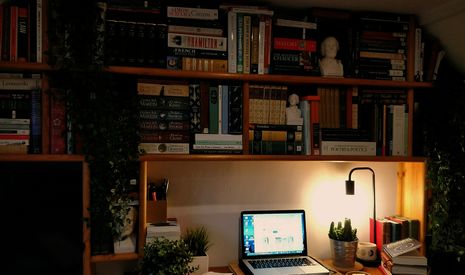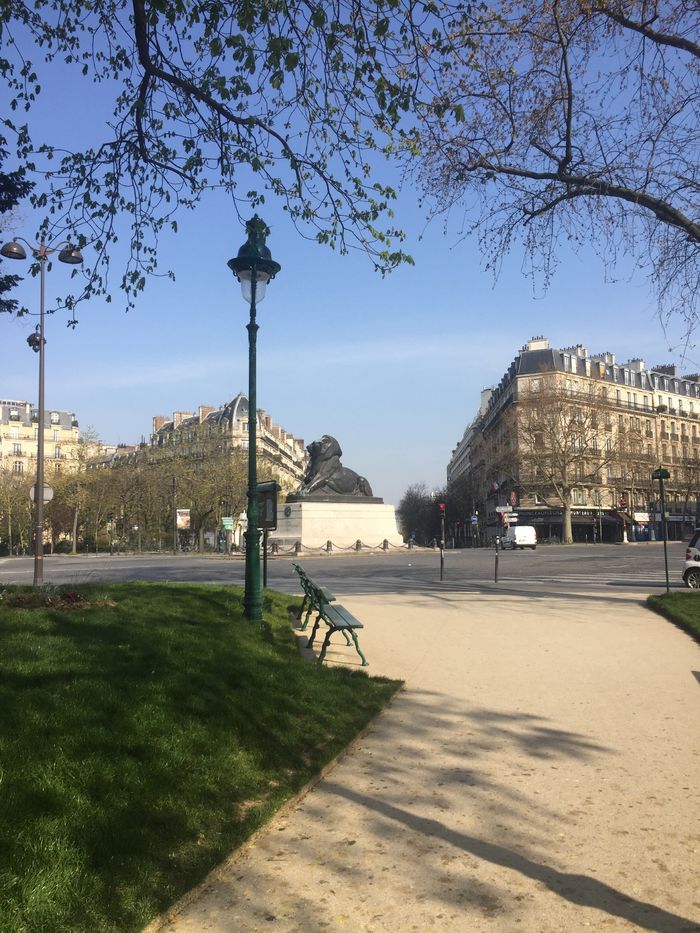Rediscovering reading for reading’s sake
After a bedroom clean-up on his return home, Harry Camp writes on rediscovering the oddities under his bed, and reading for pleasure

It is a truth universally acknowledged that English students base their entire personality on what they have read, are reading, or are going to read. Yet I begin with a confession, one that I’m sure many of my fellow Englings would readily admit to: for much of my young adult life, I’ve disliked ‘reading’. The object of my studies? Literature. You can see the issue here.
Reading has consistently taken a greater role in my education. Yet, more than ever, it has been reduced to little more than the modus operandi of analysis, critical frameworks and competing discourses (I can almost hear the scientists groan as I write this). I’ll start this weekly ‘reading’ procedure by skimming. A few pages in, I might remove an apt quotation here. I’ll transplant it elsewhere to make an undeniably adulterated version of the original meaning. Maybe, if only to make it this blatant surgery more palatable, I’ll apply a little stylistic flourish to conclude. Functional means to a functional end.
“...this strange, strange time has allowed me to ... rediscover that genuine love of reading I’d thought I’d lost in fulfilling the demands of my degree.”
It is no surprise – in an environment like Cambridge – that many students separate their ‘degree reading’ from any recreational reading: an understandable effort to build clearer distinctions between work hours and rest.
Sadder still, I think, is when we completely eliminate recreational reading from our regular routine: pushed to the ‘if’ and ‘maybe’ peripheries of the Long Vacation. In the midst of coursework, seminar reading and essay planning, the simple act of reading becomes uncomfortably reminiscent of our latest nights (or earliest mornings) in the library, the times when Cambridge has pushed us to our mental and emotional limits. And so we stop reading for pleasure altogether.
I started thinking about this again, back at home, with the begrudging clear-out of my childhood bedroom: a Herculean task I’d hoped to put off indefinitely, now necessitated by the prospect of a looming dissertation deadline, not to mention nationwide lockdown. If you could see the wooden undercarriage of my bed, you would understand why I had, for so many years, evaded the job. Concealed from light, hope, and all other worldly virtues, this archaeological cross-section – 19 years of accumulated personal history – has now finally, finally been taken care of. Treasures stored. Horrors dealt with (M.I. High box set, I’m looking at you). Done and dusted. In this case, considerably dusted.
Filling my sparkling new room with the things that make me me, age 20, I quickly discovered that my small bedroom wasn’t so much a bedroom anymore, but more of a mini-library. I do not exaggerate when I say that the walls cannot be seen for rows and rows of books. Some are thoroughly dogeared. Cracked spines, faded covers, ridges of post-it notes protruding like porcupine quills: the regrettable hallmarks of my ownership. Some are hardly touched at all (Oxford Cymbeline, I’m looking at you).
“...we should continue to expand our imaginative horizons even when – especially when – our physical ones have so drastically receded.”
In the Renaissance, they might have called it a ‘studiolo’: part-office, part-hiding place, part-cabinet of curiosities. Once precariously distributed between bedroom, spare room and uni room, this sudden compacting of all my earthly possessions into one low-roofed, wainscoted little Hobbit hole of mine – for perhaps the first and final time – filled me with an unexpected warmth. It also struck me just how much of this new room insulation I hadn’t even really picked up, let alone read from cover to cover.
If there’s one thing this strange, strange time has allowed me to do, it’s to rediscover that genuine love of reading I’d thought I’d lost in fulfilling the demands of my degree. It’s provided me with the space to enjoy furnishing my brain with new stories, ideas and arguments simply because I want to, rather than because I need to. It’s allowed me to reconnect with what drew me to my degree in the first place: something that, for so long, I’d thought I was merely aping at.
What I am learning, with each and every page, is that we should continue to expand our imaginative horizons even when – especially when – our physical ones have so drastically receded. In a strange turn of coincidence, I started with the poetry of T.S. Eliot, who seemed to speak to my present situation with a rather unsettling pertinence: “We shall not cease from exploration / And the end of all our exploring / Will be to arrive where we started / And know the place for the first time.” Returning to this tiny bedroom – the place where I used to be spend hours absorbed in reading, the place where I first started dreaming of Cambridge – I am beginning to see what Eliot meant.
If there’s that book you have been meaning to read, I’d encourage you to give it a chapter’s grace before deciding whether or not to proceed. Note ‘encourage’: if you fancy rewatching Sex Education for the fifth time, shaving your head for charity, or learning that new TikTok dance, go for it. Just make sure whatever it is adheres to all the necessary lockdown requirements in your region or country.
There should be no expectation that you’ll change the world from your home, simply because Newton did in 1665. The man also stuck a blunt needle in his eye as part of an optics experiment, so is not perhaps the most consistent of isolation role models. You’d sooner discover the appeal behind Tiger King.
That said, there’s every possibility that you could enrich your world. This might be the perfect time to explore those worlds waiting on your bookshelf, and rediscover the pleasures of reading simply for reading’s sake. It’s that, or uncover the museum beneath your bed, if you’re feeling brave enough.
 News / Judge Business School advisor resigns over Epstein and Andrew links18 February 2026
News / Judge Business School advisor resigns over Epstein and Andrew links18 February 2026 News / Hundreds of Cambridge academics demand vote on fate of vet course20 February 2026
News / Hundreds of Cambridge academics demand vote on fate of vet course20 February 2026 News / Petition demands University reverse decision on vegan menu20 February 2026
News / Petition demands University reverse decision on vegan menu20 February 2026 News / CUCA members attend Reform rally in London20 February 2026
News / CUCA members attend Reform rally in London20 February 2026 News / Gov grants £36m to Cambridge supercomputer17 February 2026
News / Gov grants £36m to Cambridge supercomputer17 February 2026










